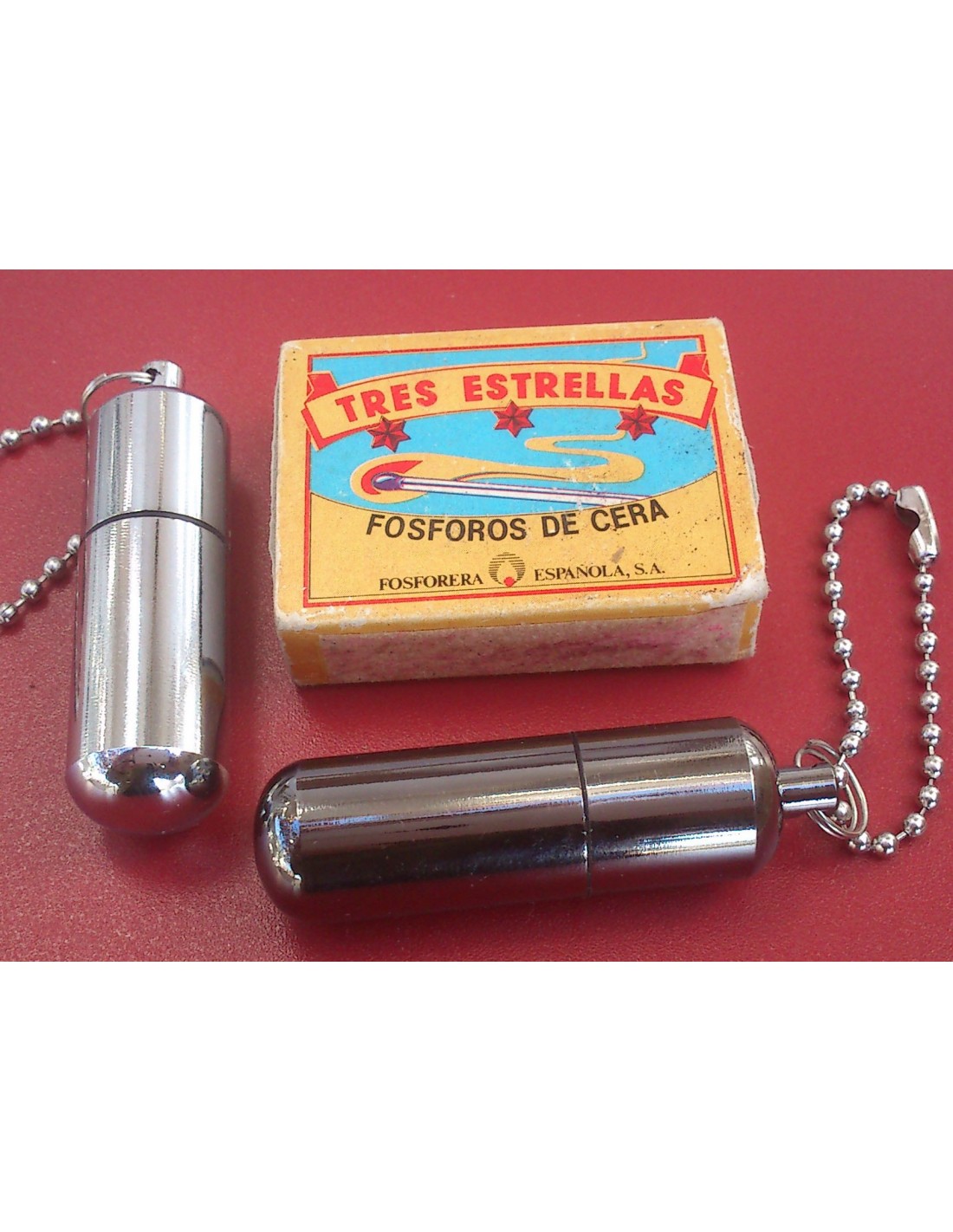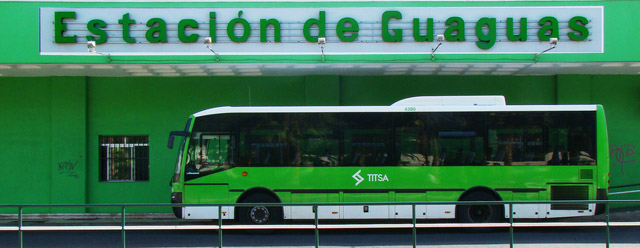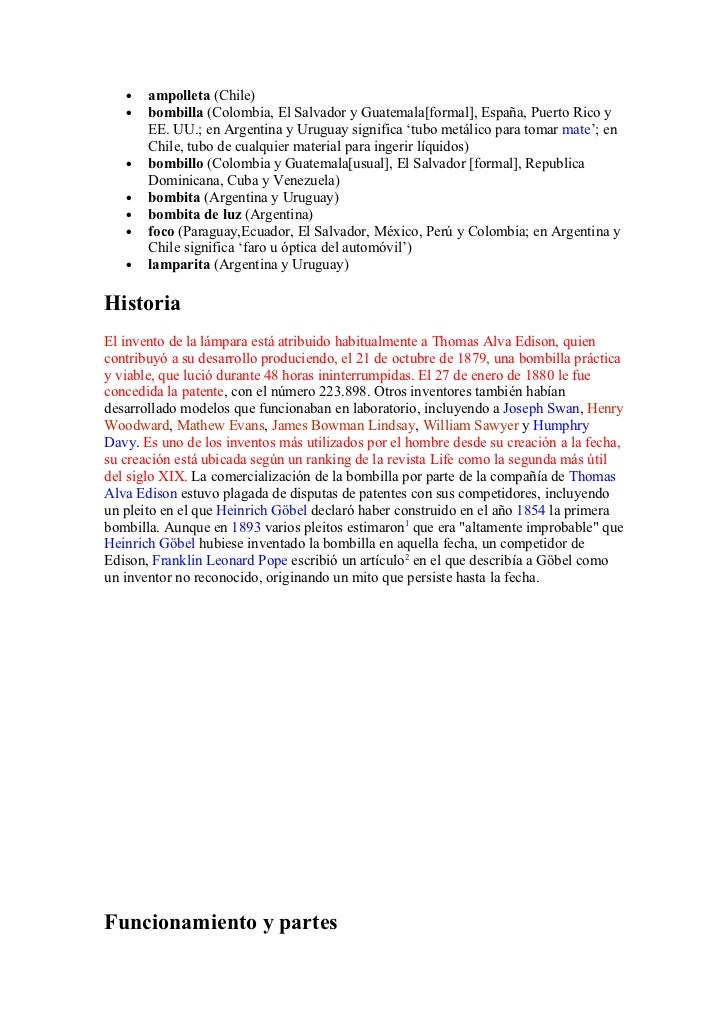Different words for the same objects in Spanish speaking countries.
Palabras diferentes para los mismos objetos en español.
Different words for the same objects in Spanish .
A Colombian friend has confounded me recently by using a different word for
for an object which I had thought had only one meaning.
I said I light a candela' each night , but she said that in Colombia a candela'
is a cigarette lighter'.I believe that in the rest of the Spanish world they use
encendedor for lighter or mechero, and candela or *vela is a candle.
(1 ) Is this correct ?
( 2 ) Are there any more such words that you are aware of .
Please give examples in both languages please ,I would love to know.

18 Answers
En Puerto Rico, los autobuses se conocen por la palabra "Guagua"

Los guisantes (España) en México son chícharos or arvejas. En Puerto Rico se llaman "petits pois."
Y todo el mundo sabe que en España las papas se llaman "patatas" Este plato se llama "patatas bravas"

In some parts of Bolivia "vos" is used for "tu" - to make it even more odd the "s" is not enunciated so it becomes "vo".
En México y, creo, en la mayoría de la América Latina "computer' es "computadora" mientras en España se conoce por "ordenador."
En México y la América Latina, el teléfono celular se llama " el celular." Mientras en España se llama "el móvil."
Computadora/ ordenador

celular/ móvil

Ustedes.
Latin American varieties of Spanish do not use vosotros (you, plural, informal), preferring the formal ustedes. This means that learners in Spain have to remember another verb ending.
For example, in Spain you may say Cuál fue la última pelicula que visteis? (what was the last film you saw?) to your friends, but you would probably say Cuál fue la última pelicula que vieron? to their grandparents. In Latin America, you would use the second form for both.
Ustedes is also used in the Canary Islands; only the Balearics and mainland Spain use vosotros. If you only use the Latin American form, you will be understood perfectly well in Spain. In fact, people will probably just consider you polite!
Latin American varieties of Spanish do not use vosotros (you, plural, informal), preferring the formal ustedes. This means that learners in Spain have to remember another verb ending.
For example, in Spain you may say Cuál fue la última pelicula que visteis? (what was the last film you saw?) to your friends, but you would probably say Cuál fue la última pelicula que vieron? to their grandparents. In Latin America, you would use the second form for both.
Ustedes is also used in the Canary Islands; only the Balearics and mainland Spain use vosotros. If you only use the Latin American form, you will be understood perfectly well in Spain. In fact, people will probably just consider you polite!
Vocabulary.
The vast majority of Spanish words are universal, but some are not. Some examples include teléfono móvil / celular and ordenador / computadora, with the second of each pair being the Latin American form. There are also many more words that vary between dialects. For example, a pen is boligrafo in Spain but lápiz pasta in Chile, lapicera in Argentina and so on. Here is a great video by two Colombian brothers about the different words you will find around the Spanish-speaking world:
The vast majority of Spanish words are universal, but some are not. Some examples include teléfono móvil / celular and ordenador / computadora, with the second of each pair being the Latin American form. There are also many more words that vary between dialects. For example, a pen is boligrafo in Spain but lápiz pasta in Chile, lapicera in Argentina and so on. Here is a great video by two Colombian brothers about the different words you will find around the Spanish-speaking world:
Overall, the differences in vocabulary are no greater than those between British and American English.
Watch the video it is great listening practice.
A lightbulb:
According to my sources:
bombillo- various countries, can also be the u shaped trap in drainage from sinks.
bombilla- various countries- can mean a specific straw for drinking mate in areas that use it, also a ladle in Mexico?
foco- many countries- also means focus in a variety of senses
ampolleta- Chile- means a vial/ampule elsewhere
also bombita, lámpara, lamparita, lamparilla (mostly Southern Cone)
And in Nicaragua- bujía, which normally is a spark plug.


I never heard of candela being used as vela but I have a friend whose name is Candela. Candelaria is also a name.
In Argentina we don't say autobús, we call them colectivos or bondis. Popcorn is pochoclo here. Guisantes is arvejas. Popote is pajita or sorbete. Fresa is frutilla. Camiseta is remera.
We use "vela" for candle but we understand "candela" too. We could also use "candelabro" normally but not "candela".
Voy a poner las velas en el candelabro.
As for lighter, we use mostly "encendedor" but in old times I can still hear my father's voice calling it "yesquero".
As for "mechero" we use it but in a Chemistry class or it's a device with a mecha. It's not something we take in our pockets to light a cigarrette.
I did a set of flashcards once, all with Spanish words:
If anyone sees anything I did wrong with it, I am open to comments.
The word on the left is intended to make a Spaniard happy, that on the right a Mexican.
http://www.spanishdict.com/flashcards/189672/sinnimos-e-m
inodoro escusado
manta cobija
bolígrafo pluma
paquete cajetilla
cremallera cierre
rotulador marcador
estantería librero
móvil celular
ordenador computadora
bombilla foco
frigorífico refrigerador
altavoz bocina
ascensor elevador
coche carro
conducir manejar
peaje cuota
maletero cajuela
capó cofre
neumático llanta
pendiente arete
zapatillas tenis
chaqueta saco
camiseta playera
melocotón durazno
albaricoque chabacano
pomelo toronja
patata papa
batata camote
judía frijol
judía verde ejote
mazorca de maíz elote
seta hongo
zumo jugo
bocadillo torta
enfadarse enojarse
atar amarrar
coger tomar
afeitarse rasurarse
suelo piso
escaparote vitrina
piscina alberca
acera banqueta
dormitorio recámara
mejilla cachete
resaca cruda
alquiler renta
pavo guajolote
guisante chícharro
mono chango
To my understanding:
For a shower, the mechanism:
From Mexico, where it is THE word, through Central America to Colombia and Venezuela regadera is used, whereas elsewhere it is ducha.
Elsewhere regadera is a watering can.

Why are there differences?
When Spanish colonisers travelled the world to spread the word of god and take precious metals in return, they brought with them a language that was in the process of changing back at home.
A linguist called Marckwardt came up with the term “colonial lag” to describe a situation where the language spoken in colonies does not keep up with innovations in the language in its country of origin. An example in English would be the use of fall in the USA and autumn in Britain; when British colonisers went to America, fall was more common than the Latin version in British English. The older, Germanic word fall later became obsolete in Britain but has remained in common use in the USA. This process happens with vocabulary but also with grammar.
Later on, immigrant groups from different parts of Europe brought linguistic traditions with them to Latin America. In turn, these groups met different local linguistic traditions, creating variations in local dialects.
Voseo
When the Spanish colonies were founded by different groups, they took with them the Spanish that was spoken in Spain at that time, along with elements of their local dialects. The Spanish spoken in the colonies then started to develop in slightly different directions as there was limited communication with Spain (telephones were still hundreds of years away). Some elements of older Spanish were kept, others dropped.
One of the clearest examples of that process is the use of vos, primarily in Argentina, Paraguay and Uruguay. Originally a second-person plural, vos came to be used as a more polite second-person singular pronoun to be used among one’s familiar friends. It was commonly used in Spanish when the language reached the southern cone of the Americas. It fell out of use in Spain but stayed in Rioplatense Spanish. Nowadays, just like 150 years ago, at a bustling Buenos Aires cafe, you are much more likely to be asked “de donde sos?“ than “de donde eres?”
The use of vos and its distinct conjugation now appears to be growing in parts of Latin America where it had previously been used by minority groups, such as Bolivia, Chile, Nicaragua and Costa Rica.
Importantly, people will understand you all over the world if you use tú or vos.
When the Spanish colonies were founded by different groups, they took with them the Spanish that was spoken in Spain at that time, along with elements of their local dialects. The Spanish spoken in the colonies then started to develop in slightly different directions as there was limited communication with Spain (telephones were still hundreds of years away). Some elements of older Spanish were kept, others dropped.
One of the clearest examples of that process is the use of vos, primarily in Argentina, Paraguay and Uruguay. Originally a second-person plural, vos came to be used as a more polite second-person singular pronoun to be used among one’s familiar friends. It was commonly used in Spanish when the language reached the southern cone of the Americas. It fell out of use in Spain but stayed in Rioplatense Spanish. Nowadays, just like 150 years ago, at a bustling Buenos Aires cafe, you are much more likely to be asked “de donde sos?“ than “de donde eres?”
The use of vos and its distinct conjugation now appears to be growing in parts of Latin America where it had previously been used by minority groups, such as Bolivia, Chile, Nicaragua and Costa Rica.
Importantly, people will understand you all over the world if you use tú or vos.
The trunk of a car is known as a car boot in British English.
Note on my list I put Maletero for Spain and Cajuela for Mexico.
In Spanish there is quite a bit of variation (note some countries will use more than one word):
Baúl- Argentina, Chile, Colombia, El Salvador, Guatemala, Honduras, Panamá, Paraguay, Puerto Rico, DR, Uruguay
Cajuela – Costa Rica, Ecuador, México
Maletero- Bolivia, Chile, Costa Rica, Cuba, España, Uruguay, Venezuela
Maletera- Bolivia, Nicaragua, Perú
Portamaletas, maleta del auto- also in Chile,
Maleta also in Venezuela
Portabultos- Islas Canarias
Valija- Uruguay
Portaquipaje- México

Another pair from my list- I put albaricoque for Spain, chabacano for Mexico. I did not include damasco, which is common in other areas.
Here is a fuller exploration of the variation:
Apricot (and the tree).
El árbol es denominado comúnmente
• albaricoquero,
• albaricoque (en España, Venezuela, Perú y Colombia),
• damasco (en Andalucía, Canarias, el Cono Sur y Cuba).
• En Argentina se distingue entre damasco (de fruto pequeño) y damasca (que tiene frutos más grandes y hojas de mayor superficie).
• alberchiguero (en algunas partes de Andalucía, Castilla y León y Castilla La Mancha)
• albergero (en Aragón).
La fruta se suele denominar
• albaricoque,
• damasco (en Andalucía, Canarias, el Cono Sur y Cuba),
• chabacano (en gran parte de México),
• albérchigo (en algunas partes de Andalucía y Castilla La Mancha),
• alberge (en Aragón y La Rioja).

Fun video regarding this topic: "Qué difícil es hablar el español". https://www.youtube.com/watch?v=4LjDe4sLER0 (English subs) https://www.youtube.com/watch?v=eyGFz-zIjHE (Spanish subs)
Note on my list:
frigorífico for Spain
refrigerador for Mexico.
Here is the full list of words, and which work where:
Frigidaire
Argentina, en desuso. (Más común: «heladera»);1 Bolivia;1 Cuba (también «frío» y «refrigerador»);1 7 República Dominicana1
Frigider
Chile, en desuso.1 Actualmente se le dice «refrigerador».8
Frigorífico
España. Se abrevia comúnmente «frigo». En cambio se le llama «nevera» a la caja portátil hermética a la que se le agrega hielo para conservar los alimentos en un picnic. En el siglo XX también se llamaba «nevera» al mueble alacena en el que se introducía una barra de hielo para mantener fresca la comida (había un repartidor de hielo que iba por las casas).7
Frío
Cuba (también «frigidaire» y «refrigerador»).7
Heladera
Argentina. El compartimento superior, donde se hace hielo, se llama «congelador». Pero si ese compartimiento produce más frío que un congelador, se llama freezer ([fríser]).7 Uruguay[cita requerida]
Nevera
Chile, en desuso (actualmente se le dice «refrigerador»). Actualmente se le dice «nevera» a una caja portátil hermética a la que se le agrega hielo para conservar los alimentos en un picnic7 Colombia[cita requerida] Países del Caribe. El compartimento superior, donde se hace hielo, se llama «congelador»7 Venezuela. El compartimento superior, donde se hace hielo, se llama «congelador».7
Refrigerador
Chile8 Cuba. El compartimento superior, donde se hace hielo, se llama «congelador» o «frízer» ([fríser]). Frigorífico se le dice a una cámara de refrigeración, de uso industrial.7 Ecuador[cita requerida] México (se abrevia «el refri»). El compartimento superior, donde se hace hielo, se llama «congelador»7
Refrigeradora
Costa Rica, Nicaragua (se puede abreviar «refri») Ecuador Honduras Perú
"
A Disclaimer by Ray."
Let it be noted that I neither agree nor disagree , I say this to dispel any unnecessary and possibly incorrect aspersions as to my alienation of, or inclination to one side or the other , any attempt to colour me with a politically incorrect viewpoint may result in my removal to a dark corner to sob gently but with purpose May the force be with you.
Let it be noted that I neither agree nor disagree , I say this to dispel any unnecessary and possibly incorrect aspersions as to my alienation of, or inclination to one side or the other , any attempt to colour me with a politically incorrect viewpoint may result in my removal to a dark corner to sob gently but with purpose May the force be with you.
These are a few Mexican slang or idiomatic expressions ,I am taking
the chance that they are benign and not offensive to any members
If this is not the case please note the above disclaimer
¿Qué onda?
Similar to ¿Qué pasa or Que tal?
Friend: ¿Qué onda? (What’s up?)
You: Voy al cine. ¿Quieres ir conmigo? (I’m going to the movies. Want to come with me?
No manches.
¡No manches! = No way! / You’re kidding!
You: ¡Gané $500 en la lotería! (I won $500 in the lottery!)
Friend: ¡No manches! (No way!)
¡Aguas! = Watch out!
Friend:* ¡Aguas!* ¡No te caigas! (Watch out! Don’t fall!)
You: ¡Sé lo que estoy haciendo, güey! (I know what I'm doing, dude!)
Chela= Mexican slang for beer













